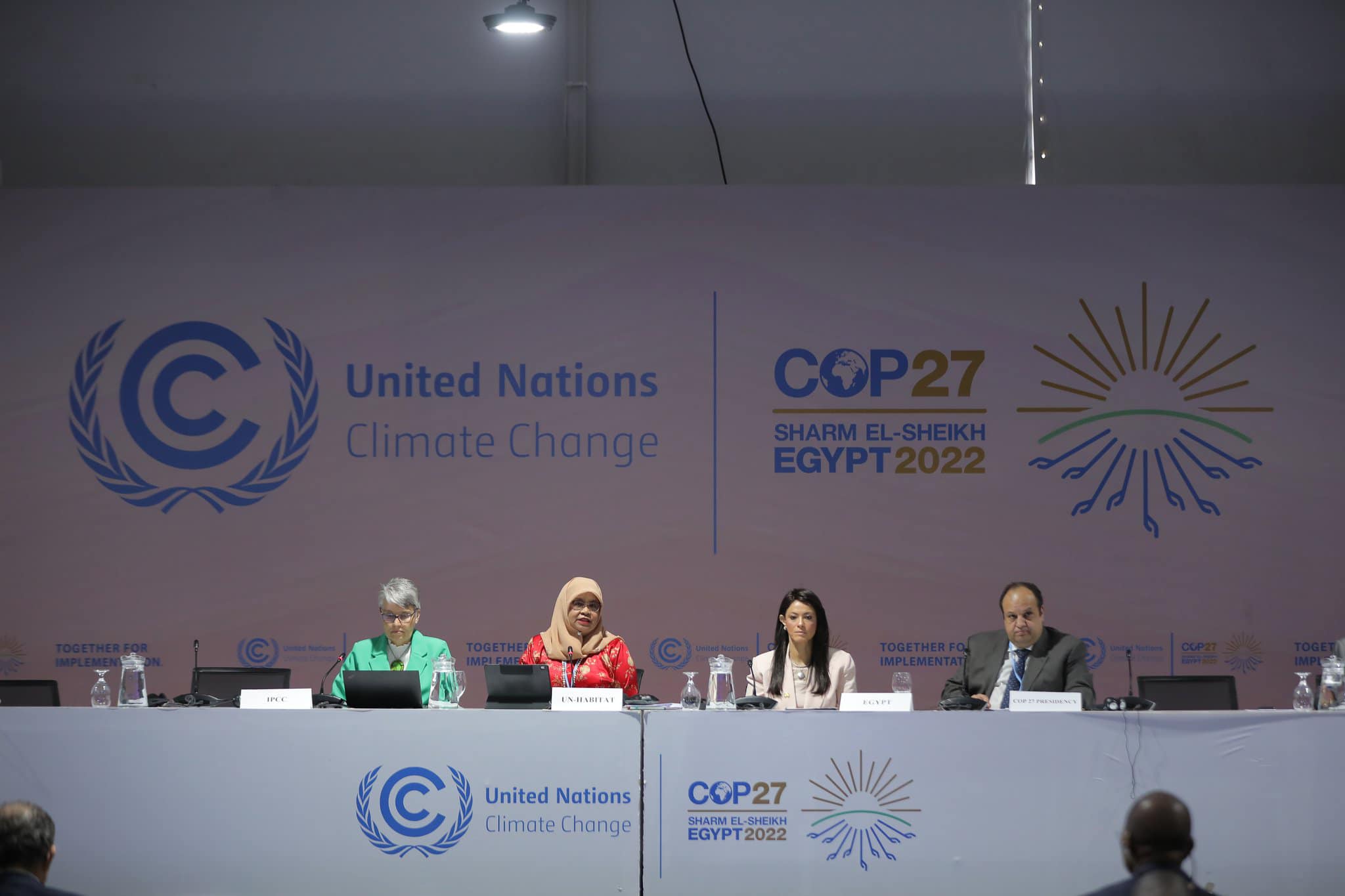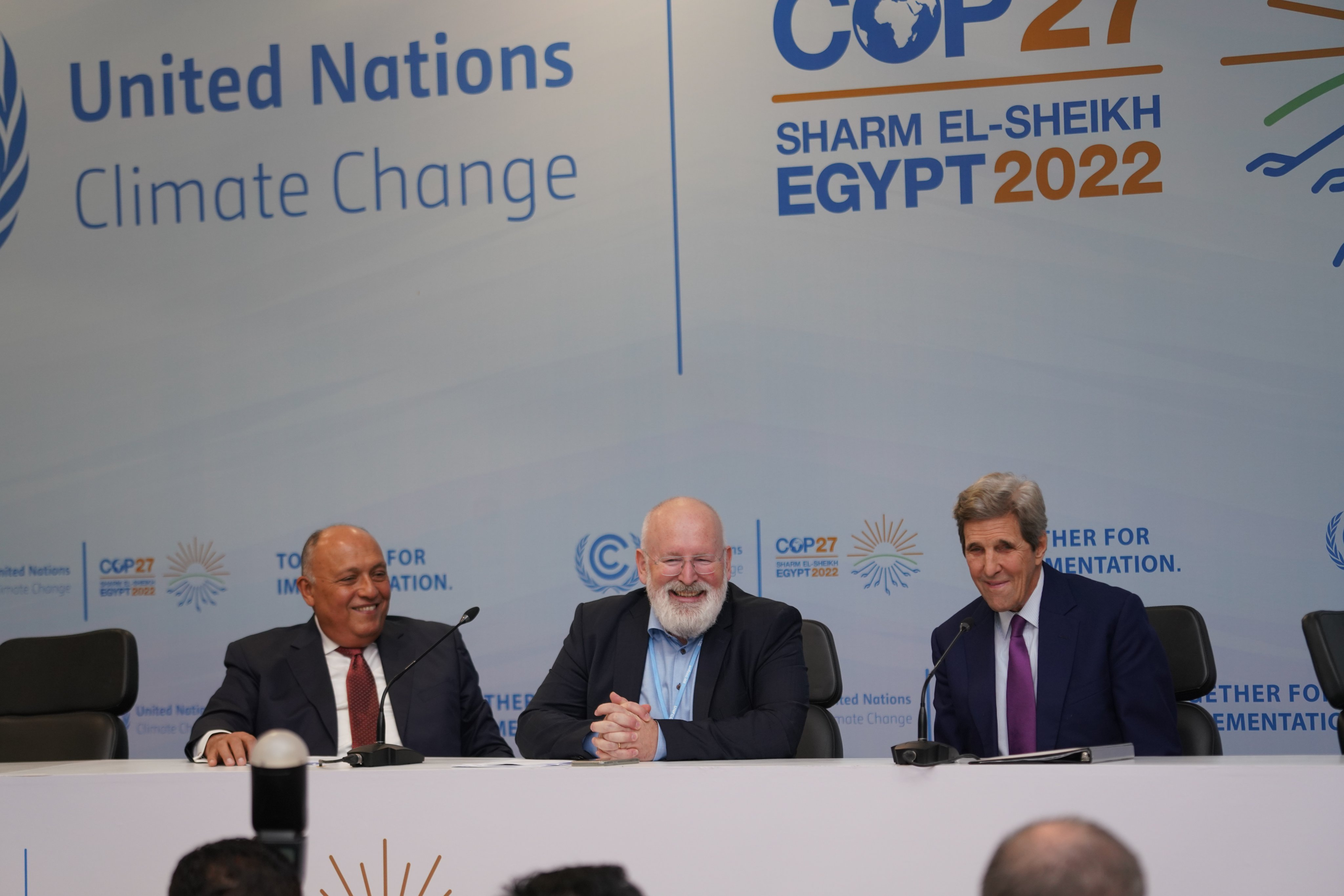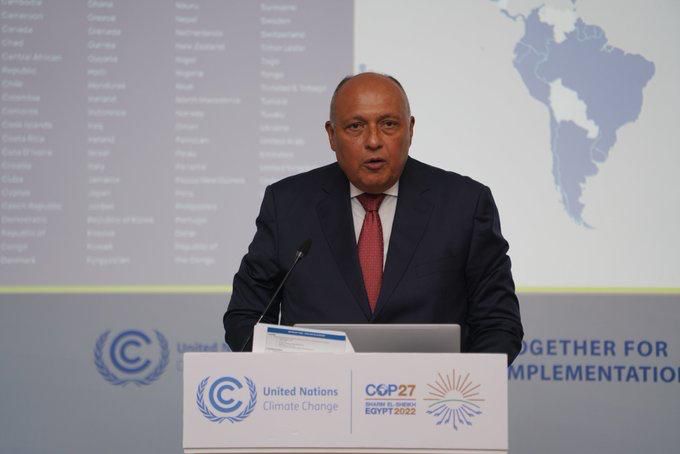
On November 18, 2022, the Egypt COP27 Presidency launched four solution centered initiatives on the last day of COP27s’ thematic day. The initiatives launched in relation to climate solutions, provide complimentary pathways to enhance global climate action and ensure that countries are able to fulfill their NDCs and meet the goals of the Paris Agreement.
Friends of Greening National Investment Plans in Africa and Developing Countries initiative: Lead by Egypt’s Ministry of Planning and Economic Development and supported by the United Nations Development Programme (UNDP), the Initiative aims at shaping the process of planning and designing the economic policies in a manner that factors in the impact of climate change, quantifying the efforts made in mitigation and adaptation, while also identifying the gaps and support needed, and proposing a set of essential guidelines, criteria, and policy advice, to expedite the implementation of the UNFCCC, Paris Agreement and the NDCs.
Low Carbon Transport for Urban Sustainability (LOTUS) initiative: Responding to the urgent need and willingness to move away from the legacy ‘mode-first’ mindset, the transformative initiative aims to activate systemic change to improve and decarbonize the urban mobility landscape. Facilitated by SLOCAT and BCG and developed in collaboration with the UN Environment Program. The initiative will focus on improving access to low carbon and resilient urban mobility solutions and strengthening the foundational enablers of change as the first-order priorities. To set sustainable low-carbon mobility as a top priority, LOTUS allows existing efforts to be scaled and replicated across geographies.
Commenting on the launch, COP27 President Shoukry said: “Decarbonizing the urban mobility landscape is a priority for the Presidency and featured prominently as one of our important discussions during the Sharm El Sheikh Implementation Summit. With over half of the world’s population living in cities, transportation makes up 37% of CO2 emissions from end‐use sectors. As urbanization accelerates in the global south, improving urban transport and mobility is becoming an increasingly salient lever to address the challenge of global emission.”
Sustainable Urban Resilience for the next Generation (SURGe) initiative: Launched by the COP27 Presidency, in collaboration with UN-Habitat and with the facilitation of ICLEI, SURGe aims to effectively address some of the barriers that limit urban emissions reductions, adapting urban systems to climate change, and building urban system resilience. The initiative will track buildings and housing, urban water, urban mobility, urban waste and consumption, and urban energy, all of which will be supported by partnerships and collaborations with organizations from all over the world.
“Climate change and growing urbanization are intertwined megatrends. Sustainable urbanization is a critical piece of mitigation measures in the developing world where urbanization is most rapid. SURGe seeks to create a better, more sustainable, and stronger urban world aiming at net zero emissions and decarbonization. This initiative is another example of how COP27 is helping to bring partners together for implementation,” said a COP27 Presidency spokesperson.
Global Waste Initiative 50 by 2050: The initiative seeks to treat and recycle at least 50% of the solid waste produced in Africa by 2050. It will leverage voluntary engagements from over 180 countries at the international level for Africa to achieve this target. The initiative is first of its kind global coalition that proposes a collaborative platform for all stakeholders involved in waste management to holistically address all solid waste types and contribute to an ambitious target at the scale of the African continent.
Learn more, here.


